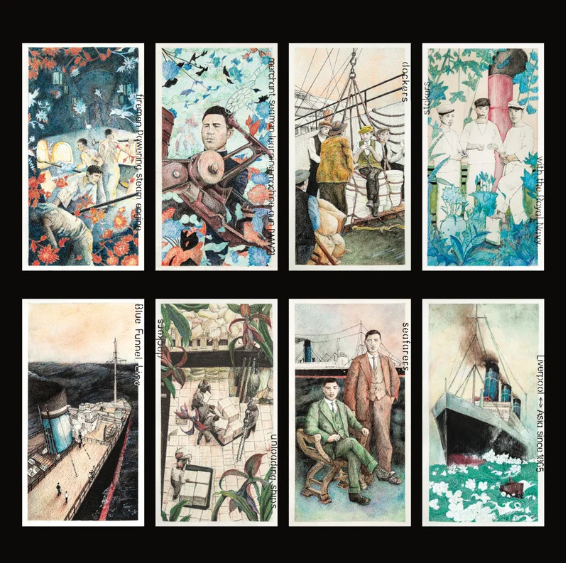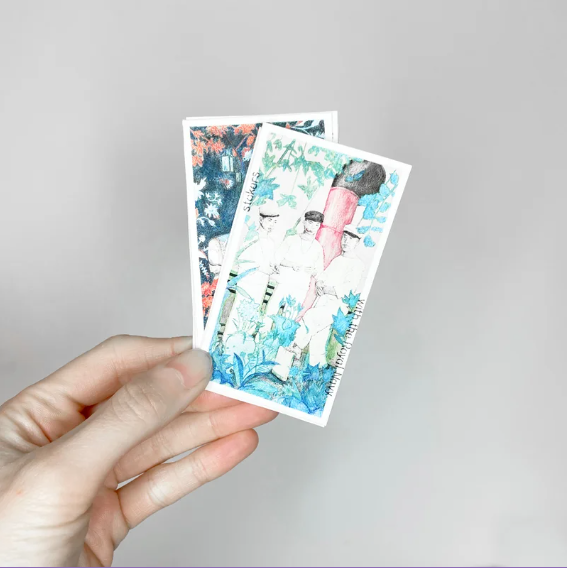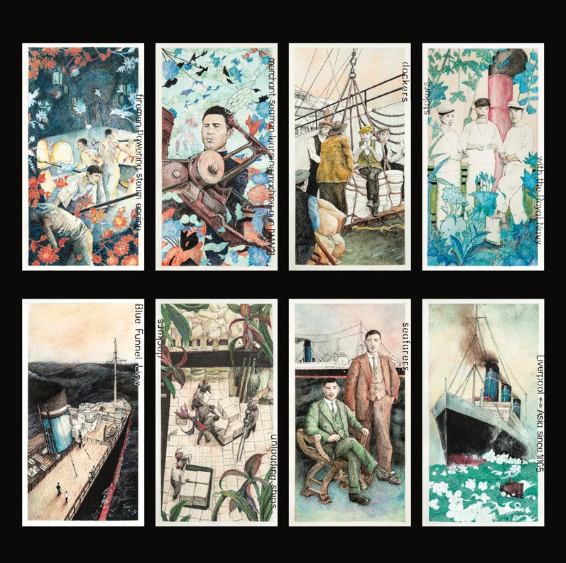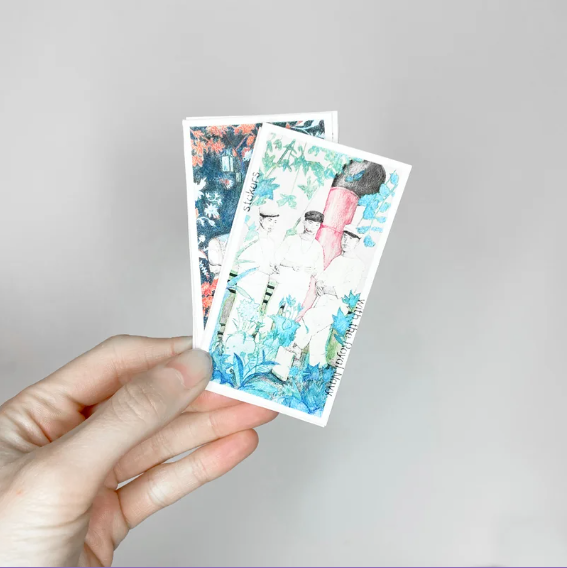Seafarer Cards《海員煙仔卡》 (8 of 8) Full Deck by Yarli Allison
Seafarer Cards《海員煙仔卡》 (8 of 8) Full Deck by Yarli Allison
Couldn't load pickup availability
Unframed
A set of 8 mini cigarette card drawings printed as a small collection of cards.
Giclée Print on Premium Paper
8.5 (L) x4.6 (W) cm (Each Card. Approx)
The length is similar to a typical poker card and much narrower.
Rarity classifications: Limited Edition. 250 + 2AP.
Signed by Artist.
This set of cigarette cards drawings is part of Yarli's installation In 1875 We Met At the Docks of Liverpool 《1875 於梨花埠遇上》 at FACT Liverpool (2021).
The work depicts seafarers of East and Southeast Asian (ESEA) heritage, who worked for the British Royal Fleets during the late 19th century to early 20th century colonial era. Historically forgotten, their roles were crucial and their skills and power determined the speed, balance, and supplies of a steamship.
Although various roles were across the decks, most seafarers worked in the engine rooms as firemen and stokers, bunker men and coal boys, greasers, trimmers, and donkeymen. These works were dangerous, fiery hot, coal-dusty, and physically intense, which were described as "the closest place to hell".
Despite being exploited by much less wage than their White peers, many endured as the work provided food-on-the-table for families afar from England back in their homeland, while some of them were bonded to a false contract.
“Racists ideas about supposed physical attributes determined a seafarer’s role on a ship (Maritime Archaeology Trust).” Lighter skin seafarers often were appointed to public-facing roles such as “cabin boys” whereas others doesn’t see the light of the day in the engine room. Their names were spelled wrongly, some carry these wrong names into the grave of a foreign land. Those who survived the sick and war, were eventually repatriated away from England (1946) where they were rooted.
"My ancestor worked in such conditions but remained unnamed. This work pays tribute to the forgotten."



